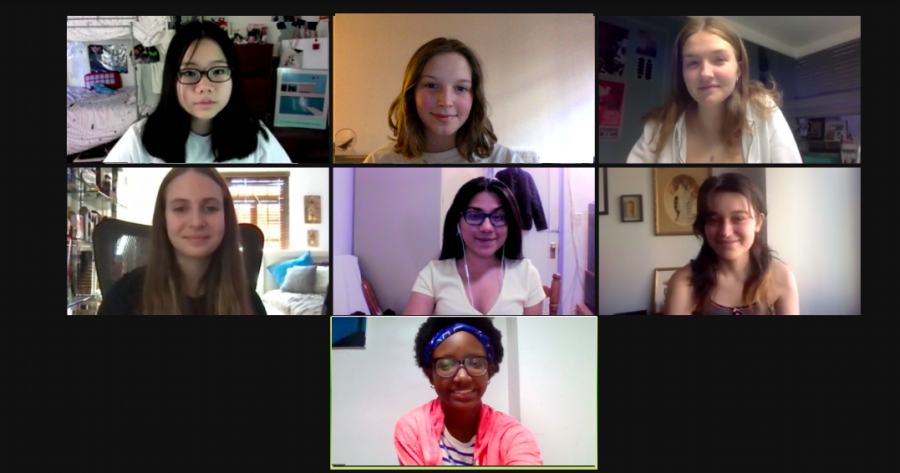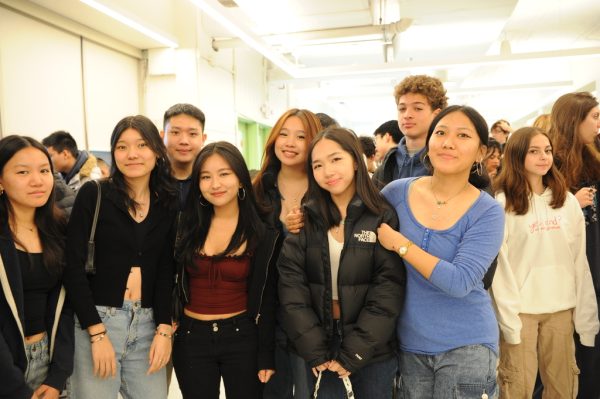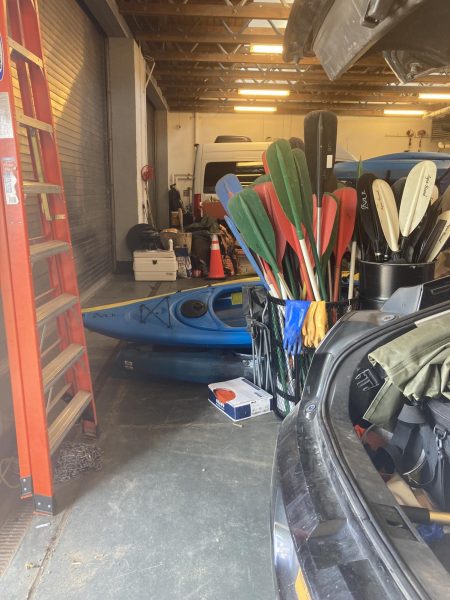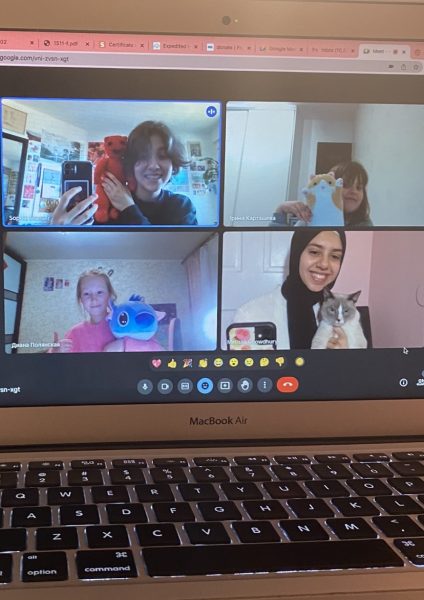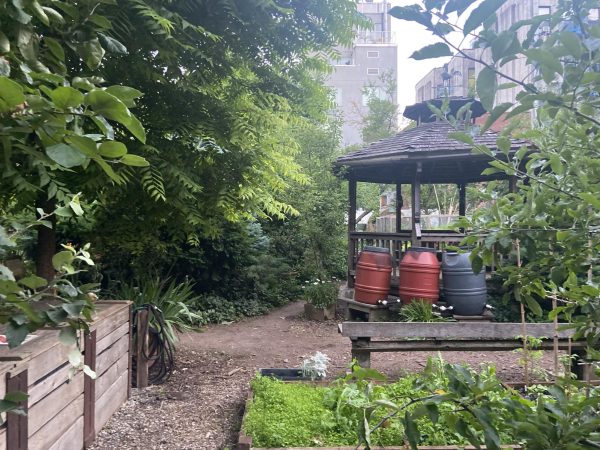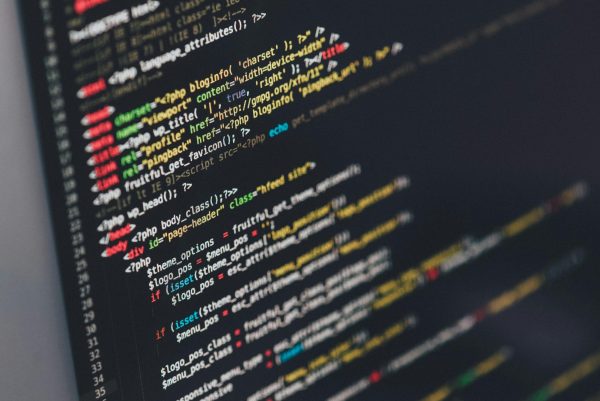May 2021 Advice Column: Springing Into the Spring Semester
From sleep habits to sustainability – we’ve got you covered.
Pictured are some of the Editor-in-Chiefs of ‘The Science Survey’ discussing this advice column during a Zoom meeting. Pictured from rom left to right, top to bottom are Montana Lee ’21, Julia Sperling ’21, Kate Reynolds ’21, Logan Klinger ’21, Samama Moontaha ’21, Edie Fine ’21, and Jamie Lee Nicolas ’21
Hi, Bronx Science!
Congratulations on making it this far in the year. This 2020-2021 academic year has brought endless surprises and challenges, given the Coronavirus pandemic. However, Bronx Science students have been resilient as always. As Spring approaches, we hope everyone can get a break from Zoom and Google Meets classes and enjoy the nice weather. Happiness is a priority!
We Editors-in-Chiefs of The Science Survey are back with advice to help navigate life and school right now. From topics such as how to share writing to dealing with bad days, we have used our experience and empathy to inform our advice. If you have any questions that you would like to submit for the next issue, you can submit them here.
Stay well Bronx Science!
With love,
Julia Sperling ’21, Jamie Lee Nicolas ’21 Kate Reynolds ’21, Samama Moontaha ’21, Logan Klinger ’21, Edie Fine ’21, and Montana Lee ’21
P.S. Here is a table of contents of topics that are covered below.
Table of Contents:
Dealing with bad days
Writing
Feeling Behind
Sleep Habits
Screen time
Sustainability
To-do lists
How do I turn a bad day around and get it back on track? During this time of the Coronavirus pandemic, there are a lot of them.
I know how easy of a time it is to feel overwhelmed and unmotivated, and have the “bad days” that you’re thinking about. We’re living through a pandemic — it’s not an easy thing to deal with at all. The most important thing to acknowledge when you’re feeling down is to understand that those feelings are normal, and you shouldn’t blame yourself for having them. You are not doing anything wrong.
When I’m feeling extra tired or lazy or unmotivated, I try to find time to take breaks and destress. This usually involves making some art, reading a book, or listening to a podcast while I make some cookies. If you have any free time during the day, try to use it by doing something that you genuinely enjoy or that calms you down. It’s so easy during online school to feel pressured to spend every second being productive. If I have an asynchronous period for a class, I usually feel rushed to finish all my asynchronous homework in that period, out of worry that it’ll only pile up later in the day. While it’s a good and productive habit to do your asynchronous work/homework throughout the school day, I also think that your free periods should, at times, be used for relaxation and de-stressing. It can be exhausting staring at a Zoom screen or at your Google Classroom all day. Try to use a few of your free periods to take a breather and go offline or go outside— it’s these little moments that will make you happier and more productive in the long run.
One thing that really worries me about the Coronavirus pandemic is how it has affected students’ mental health (including my own). It’s a really stressful and confusing time, which is why these “bad days” can be pretty common for plenty of students. When you’re feeling this way, I highly encourage you to reach out to a teacher you trust or to your guidance counselor for support. Teachers and counselors know how uncertain and stressful this time is, and they are there to help you. You can always reach out to Ms. Heckman or your own guidance counselor to seek advice for these issues that a lot of us are working through right now.
The final advice I’ll offer is to remind yourself how one “bad day” is so minuscule in the grand scheme of things. Remember the things you’re looking forward to — maybe it’s the nice summer weather, maybe it’s getting vaccinated at some point in the future, maybe it’s a cool class that you want to take next year. Just identify something that you’re excited about or proud of doing, rather than focusing on your feelings of stress or loneliness. Remember that this pandemic will end, and life will go on, and those bad days won’t define you.
— Kate Reynolds ’21
I am almost 15-years-old, and my dream is to become an author. I love to write and do it often. But I’m having trouble finding a safe way to get feedback on my writing. My parents won’t let me publish my writing on any website because they don’t like the idea of random people on the internet interacting with me and giving me feedback. I understand that, but I feel bad nagging my friends and family to read my writing, and when I do, they barely ever read it and don’t give me much feedback. Do you have any ideas for a safe way to share my writing?
This is a wonderful and important question. As a writer, I totally understand the frustration of one-sided relationships when it comes to feedback. My number one advice would be to join Dynamo, our school’s literary magazine, if you have not already. As a senior editor, I help lead club meetings (Wednesdays at 5:00) with my co-editors, and the club meetings are based on giving feedback! We review writing anonymously and discuss everything from theme analysis to feedback we would give the writer. If you have any questions, you can email [email protected], but I would recommend sending in a piece of writing and joining the meeting the day it is being reviewed. If it is accepted, it will be published in a magazine only given to Bronx Science students, so your parents should not be worried about strangers unfairly interacting with your work. Additionally, through a community like Dynamo, you can find friends equally excited about writing who will be eager to give thoughtful feedback.
I would also recommend sending a polite email to your English teacher asking if they could review a piece of writing. They have busy schedules and while they are not obligated to, you do not know if you don’t try! Many English teachers are excited to see their students’ writing outside of class, and they will have great advice to give.
Essentially, find communities and peers who will reciprocate your love of writing and give you a safe place to share it in until your parents are comfortable with you submitting your work elsewhere. It might be helpful to find a few established magazines or feedback groups you’d like to submit work to and present them to your parents, proving that your work will only be interacted with by trusted individuals. It feels extremely rewarding to have published work, so I hope your parents ease up. Until then, keep writing and keep sharing — there ARE always people who want to listen!
— Julia Sperling ’21
How can I work through the feeling of being ‘behind in life,’ something that I’ve been feeling a lot lately during this time of social isolation due to the Coronavirus pandemic?
I completely understand! The pandemic has been a universal experience. Everyone has had experiences that we’ve missed out on, making us feel like we are ‘behind in life.’ Even though everyone has missed out, people aren’t always going to share it. On social media, we rarely post about bad days. Instead, our feed is full of toxic positivity, and we find ourselves constantly comparing our life to others.
Especially at the start of the pandemic, people posted and boasted about their new hobbies. While it’s excellent to acquire a new skill, you shouldn’t feel the demand to do this. Everyone has different situations during the pandemic. Even if you find yourself with more free time, it doesn’t always mean that you’re in the mental state for learning. That’s okay! Sometimes the best thing you can do for yourself is to relax. Although you may feel ‘lazy’ doing it, spending time focusing on yourself and practicing mental wellness is always productive.
If possible, talking to your family and/or friends is an excellent place to start. As this is such a common but simultaneously isolating feeling, hearing it from those you are close with can help you understand that the feeling is entirely valid. You may even strengthen the bonds with your family/friends while you’re at it! Additionally, if you are able to, joining a club here at Bronx Science can help. Not only would you get to meet new people, but no matter what the club is, participating may put your mind at ease.
Remember that everything you do is progress. While you may not have the life experiences someone else did at your age five years ago, our generation’s experiences will be unique to us. Your experiences adapting will always vary from the next person, so acknowledge your accomplishments no matter how seemingly insignificant they may be. Even rolling out of bed for your first class, drinking a glass of water, or submitting a homework assignment on time is something to take pride in.
— Logan Klinger ’21
I find right now during the Coronavirus pandemic that I tend to be too distracted and consumed by technology. What suggestions do you have to cut down on screen time?
Me too!
I could write an entire article about this. I’m not a great example because I struggle with this too, but maybe that gives me more of an appeal to ethos as a writer! I’m actively working on managing screen time, and a technique that I haven’t seen elsewhere is to include more non-screen time. Essentially, instead of focusing on cutting screen time, try to add time spent being present and off your screen! This can include going for leisurely walks, reading, painting, crafting, cooking, writing/journaling, hanging out with friends, making collages, ironing clothes (it’s very soothing for me), or any non-screen activity that you enjoy. Your imagination is the limit!
So start by brainstorming a list of very specific, fun things YOU want to do! Then, focus on one or two, and designate some time for yourself to do it (this is similar to an implementation intention). For example, my best friend decided she really wanted to bake bread and read. These are activities that are fulfilling and relaxing for her. But she needed to make them more specific and actionable! So she decided that she would bake sourdough bread using a specific recipe on a certain day of the week, and she looked into some books and bought Crime and Punishment by Fyodor Dostoevsky because she thought she would enjoy reading it. Because she made these choices and did them for herself, she found herself actually doing them without much effort.
The idea is that these for-fun activities will replace time spent surfing the internet or social media or watching YouTube (typically unrewarding but “fun-in-the-moment” activities) so that you’ll only spend the time you need to do work or important things digitally. It’s like food. To eat healthier, it’s easier to focus on incorporating more wholesome foods into your diet so that they naturally edge out junk, instead of focusing only on restricting junk and feeling deprived.
A focus on decreasing screen time is also important, and one of the best ways to do so is by turning off phone notifications. That eliminates the cue for the distraction of checking your phone for no real reason. In general, look at what cues are triggering your screen time or an unwanted behavior, and try to eliminate them.
Also, if you catch yourself fiddling or checking your phone, consciously ask yourself, Do I want to be doing this or am I just wasting my time? Don’t waste time on your phone. Waste time doing something non-digital. Also ask, Does the amount of attention I’m giving this match its importance? (—James Clear). Mindfulness increases awareness, which is the first step of eliminating any problem!
If you want more data-driven techniques, ironically, these applications help me decrease screen time:
RescueTime is a great app to track and analyze your computer usage. It allows you to look at trends on a weekly, monthly, or even yearly basis and think about what you want to do more or less of. The premium version allows you to set alerts and access analytics, but the ordinary version does the job.
Moment, a mobile app, tracks active phone use and offers mini-challenges to help wean you off your phone. Other features include phone “fasting” and accountability groups you can make with friends or family! Checking this simple app daily and heeding its advice can help you to think about the bigger picture and use your phone less.
Include more fun, non-digital activities into your day. Eliminate the cues of screen use, like phone notifications. Use RescueTime and Moment to track and analyze screen time.
— Montana Lee ’21
What suggestions do you have for improving your sleep habits? I find that I’m keeping odd hours during the Coronavirus pandemic and remote schooling, and I would like to get back to a more normal schedule.
Thank you for this question! To be honest, I have developed a pretty irregular sleeping schedule during the Coronavirus pandemic as well. I have found myself going to bed hours later than I normally would and waking up 20-30 minutes before class. It is, however, essential for our well-being that we get enough sleep each night, and falling into a set sleep schedule can help us get enough Zzzs.
One tip is to do something relaxing before you want to go to bed. Doing something relaxing before bed can calm us down and make it easier to get to sleep. Relaxation techniques can include activities like meditating, reading a book, and listening to music.
I also suggest identifying what keeps you awake at night and trying to counteract that (this might mean putting your phone away earlier, or meditating). In addition to this, I recommend gradually easing into the new sleep schedule. Deciding to sleep or wake up hours before you are accustomed to is harder than inching your way toward your goal. If you want to go to sleep earlier, try to sleep a few minutes earlier each day until you reach your goal.
I’ll end by pointing out that you have already taken one of the most important steps in developing a more rigid sleeping schedule: working up the motivation to do so. Getting motivated to implement positive change in your life can be difficult, so I encourage you to recognize this accomplishment and have a positive outlook throughout your search for a better sleep schedule.
— Jamie Lee Nicolas ’21
How can we maintain focus on sustainability during the Coronavirus pandemic?
Thanks for this question — I’m glad to hear you’re thinking about sustainability even throughout the pandemic! I have a few suggestions, but before I get into them, I want to preface my response by reminding you that the fight against the climate crisis is not reliant on your personal activism and your lifestyle changes. The big corporations and industries that are responsible for the creation and perpetuation of the climate crisis often try to pawn off the real work on individuals — the truth is, becoming vegan or avoiding single-use plastic is not feasible for everyone, and will not fix decades worth of fossil fuel extraction and coal usage (100 companies are responsible for 71% of emissions since 1998, whereas plastic straws comprise 0.025% plastic in the ocean). Joining the fight against the large corporations at fault is a fantastic way to show your support that doesn’t have to do with these lifestyle changes that might only be accessible to certain folks (ie. those without disabilities, those with higher incomes, etc). It is imperative that we prioritize collective action, instead of being pigeonholed with personal sustainability.
With that being said, of course if you are able, it is honorable and necessary to continue to maintain a focus on sustainability. And during a pandemic, that can be quite hard. Before this past March 2020, I would always bring with me a closed jar, so that if I were to order a drink out, I wouldn’t have to rely on plastic cups and straws. However, since the rise of COVID-19, baristas and cafes have largely stopped this practice. This sequence became quite prevalent, as hygiene and cleanliness took precedence. But, there are still ways to avoid single use plastic and be sustainable! Use reusable masks and wash them often, continue to use a refillable water bottle, and remember to stuff a small tote bag in your pocket before grocery shopping.
And, as always, continue to buy less and buy second hand! So much of what we buy (clothing, especially) ends up in a landfill. Purchasing fewer items (which seems plausible when it comes to clothes; we’ve been spending a lot of time in our pajamas over the past year, haven’t we?) is always beneficial — we want to emphasize consuming less and creating less waste. Try to make old clothes new by upcycling and restyling.
Be safe, and don’t put yourself in harm’s way. If something seems like it’s a COVID-19 risk, it is not worth it. But if you are able to make sustainable choices safely, then absolutely go for it!
— Edie Fine ’21
How do I cope with a never-ending to-do list?
I know this is easier said than done, but the best and shortest answer would be to simply start. However, if you’re reading this, you might be someone who just can’t find it in you to get there fast enough. Well, productivity has a lot to do with your mentality, and if you’re not someone who’s already motivated to be on top of everything, you’ll just want to begin with subtle senses of accomplishment.
You might be asking what I mean by this. Well, for starters, you should be either writing down or mentally reflecting on all that you do in a day. Staple responsibilities such as taking a shower, brushing your teeth, or going to class are all tasks, and they should always make it onto your to-do list. Although these are reputably easy and detached from the expected standards of responsibility, they are tasks that require effort, dedication, and will, all of which are not the easiest to come by! The reason why these are especially important to write down and recognize is because it signals to your subconscious that you’re not wasting your time but rather are working hard in making material accomplishments.
Once you get the hang of that, start focusing on smaller, perhaps less time consuming tasks. My rule of thumb is that if something takes 5 minutes or less, do it on the spot. Do not leave it off for later! No matter how small a task is, you have no idea how much time, energy, and stress you would save from getting it done and out of the way. With these done, I promise you will already feel much more self-accomplished and have time on your hands you didn’t before. This is because your mind and body will begin to actually experience what it feels to recognize accomplishment. This feeling is analogous to 5-hour energy, I’m serious!
Now, we can finally come back to the “simply start” tip. When you are approached with a task to do, take some time to sit down and get started on it, regardless of whether you end up pouring your best effort into it or not, or even if you don’t come near to finishing it. From experience, I know that I am so much more likely to work on something that’s already been read through or started rather than having to begin on my own. So take that first step and you’ll see yourself no longer waiting days on days to work on one particular project.
I saved my most effective and important piece of advice for last. To cope with a never-ending to-do list, take some time away from your responsibilities to just relax and appreciate what was already done in the past. With a mind at ease, you can not only produce more meaningful work, but you’ll be more inclined to recognize that productivity is a natural subconscious attribute within yourself. Besides, clearing out some time to do this will ensure that you’re also not spreading yourself out too thin, leaving you stressed at all times. Love yourself, then get started on that to-do list!
— Samama Moontaha ’21
We Editors-in-Chiefs of The Science Survey are back with advice to help navigate life and school right now. From topics such as how to share writing to dealing with bad days, we have used our experience and empathy to inform our advice.
Julia Sperling is an Editor-in-Chief for ‘The Science Survey.' She is drawn to journalistic writing because of how journalism handles the microscopic...
Samama Moontaha is an Editor-in-Chief for ‘The Science Survey.’ She loves writing journalistic stories about the students at Bronx Science, bringing...
Edie Fine (she/they), an Editor-in-Chief for ‘The Science Survey,’ is thrilled to be on the journalism staff for a second year. She loves telling stories,...
Kate Reynolds is currently an Editor-in-Chief for ‘The Science Survey,’ and was a Groups Editor for 'The Observatory' yearbook during the 2019-2020...
Jamie Lee Nicolas is an Editor-in-Chief of the ‘The Science Survey.' Jamie enjoys journalistic writing because it allows her to express her opinions...
Montana Lee is an Editor-in-Chief of ‘The Science Survey.’ Journalism connects her to others and the stories that define them. The newspaper is her...
Logan Klinger is an Editor-in-Chief of ‘The Science Survey.' She loves journalism because it allows for the opportunity to study society through different...

